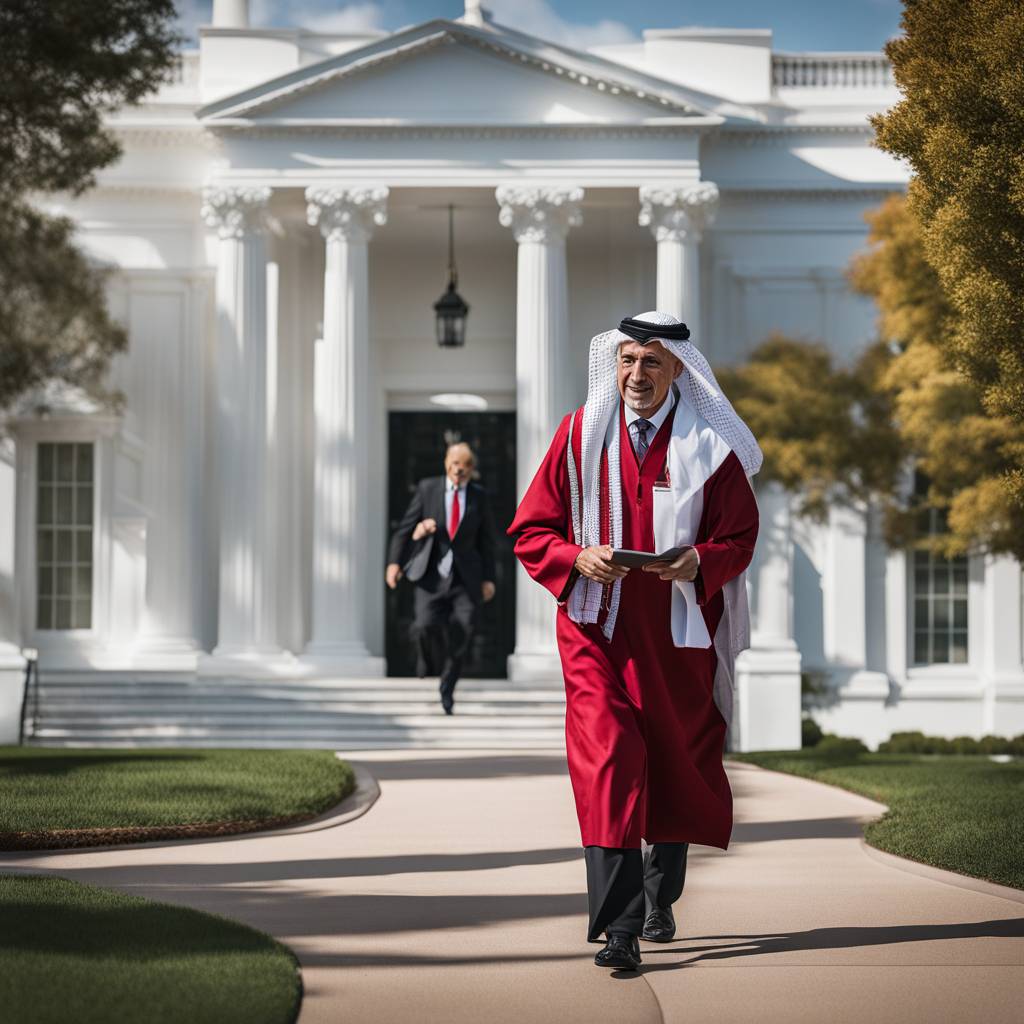An emergency room physician, Thaer Ahmad, who volunteered at Al-Nasser Hospital in Gaza, walked out of a White House meeting in protest of the administration’s handling of the war. Ahmad was the only Palestinian in attendance at the meeting with President Joe Biden, Vice President Kamala Harris, and other officials. He emphasized the need for more aid for Gaza and urged the U.S. to intervene to prevent an invasion of Rafah, a southern border city where over a million people are seeking refuge. Ahmad expressed concern for his community and survivor’s guilt over the worsening situation in Gaza.
The policy meeting, held in place of an iftar to commemorate Ramadan, aimed to discuss the crisis in Gaza. Some Muslim Americans had refused to attend an iftar due to frustrations over the war, leading to the decision to host a policy discussion instead. One Palestinian Muslim individual, who declined the invitation, criticized the administration for being out of touch with the needs and desires of the community. Emgage, a Muslim voting advocacy group, also declined to attend the meeting, stating that without more Palestinian voices and policy experts present, the meeting would not provide a meaningful opportunity for engagement.
Muslim, Arab, and Palestinian leaders across the country have rejected meetings with top administration officials in recent months, citing concerns about the humanitarian crisis in Gaza. Some groups have encouraged protest votes during the Democratic primary to express dissatisfaction with the administration’s handling of the situation. The White House has a history of hosting iftar dinners, with Donald Trump breaking the tradition in 2017 but later resuming the dinners in 2018 and 2019. Biden hosted his first iftar celebration virtually due to the COVID-19 pandemic, and last year, the White House held a reception for Eid al-Fitr instead of an iftar dinner.
Ahmad’s decision to walk out of the White House meeting highlighted the deep concerns and frustrations within the Palestinian and Muslim communities over the situation in Gaza. The administration’s efforts to engage with these communities through policy discussions instead of iftar dinners have not been well-received, with critics arguing that more meaningful engagement with Palestinian voices and experts is needed. With ongoing tensions and violence in Gaza, it remains to be seen how the administration will address the concerns raised by these communities and work towards meaningful solutions to the crisis.








